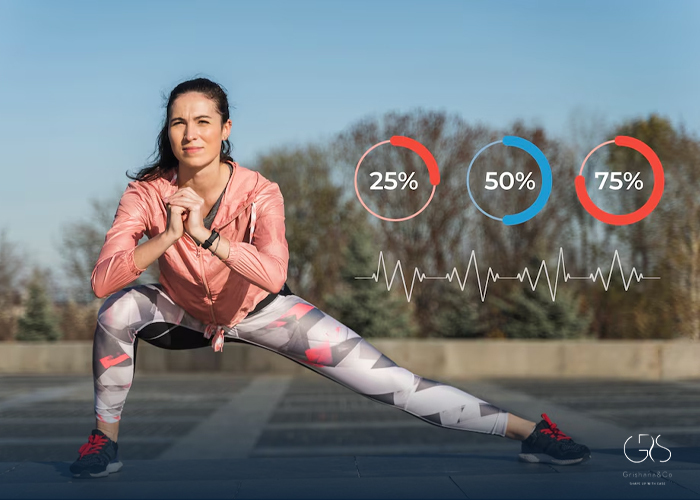In a fast-paced world where time is a precious commodity, the idea of squeezing in an exercise routine might seem daunting to many. However, recent studies have shown that even just 11 minutes of exercise each day can have a significant impact on reducing the risk of early death. Beyond extending longevity, exercise has been proven to have a profound effect on lowering the risks of cancer and cardiovascular diseases. Unraveling the reasons behind these health benefits sheds light on the importance of incorporating exercise into our daily routines to achieve optimal well-being.
Exercise’s Impact on Cancer and Cardiovascular Disease Risks
According to a study published in the British Journal of Sports Medicine, engaging in as little as 11 minutes of moderate to vigorous physical activity daily correlated with a 29% reduced risk of early mortality. This highlights the powerful effect that even a small amount of exercise can have on overall health outcomes.
Furthermore, regular exercise has been shown to lower the risk of various types of cancer, including breast, colon, and lung cancer. The American Cancer Society recommends at least 150 minutes of moderate-intensity exercise per week to reduce cancer risk.
In terms of cardiovascular health, physical activity plays a crucial role in preventing heart disease, strokes, and high blood pressure. Exercise helps strengthen the heart, improve circulation, and regulate cholesterol levels, all of which contribute to a reduced risk of cardiovascular diseases. The American Heart Association recommends at least 150 minutes of moderate-intensity exercise per week to maintain cardiovascular health.
Why Does Exercise Have So Many Health Benefits?
The multitude of health benefits associated with exercise can be attributed to its impact on various physiological systems within the body. Regular physical activity leads to improvements in cardiovascular health, increases muscle strength and endurance, enhances immune function, and promotes better mental health through the release of endorphins.
Exercise also plays a crucial role in regulating metabolism, maintaining a healthy body weight, and reducing inflammation. Moreover, physical activity helps improve insulin sensitivity, lowering the risk of developing type 2 diabetes and other metabolic disorders.
The combination of these factors contributes to a holistic improvement in overall health and well-being, making exercise a cornerstone of preventive medicine.

Exercising to Achieve the Greatest Health Benefits
While the findings that just 11 minutes of exercise each day can lead to a significant reduction in mortality risk are encouraging, it is essential to note that greater health benefits can be achieved with increased physical activity. According to the Centers for Disease Control and Prevention, adults should aim for a minimum of 150 minutes of moderate-intensity exercise per week.
Incorporating a mix of aerobic, strength training, and flexibility exercises can help individuals achieve a well-rounded fitness routine that targets different aspects of physical health. Additionally, setting specific goals, varying workout intensities, and staying consistent with exercise regimens are key factors in maximizing the health benefits of physical activity.

Incorporating Exercise Into Our Daily Routines
For many individuals, finding time for exercise amidst busy schedules can be challenging. However, adopting simple strategies to incorporate physical activity into daily routines can make a significant difference in overall health outcomes. Some practical tips include:
- Taking short walks during breaks at work or after meals
- Using the stairs instead of the elevator
- Cycling or walking for short commutes
- Engaging in active hobbies such as gardening or dancing
- Setting aside dedicated time for structured exercise sessions in the day
By making exercise a priority and integrating it seamlessly into daily activities, individuals can reap the numerous health benefits associated with physical activity.
(Check out my article on steps for longevity for practical tips on living a long and healthy life.)
Conclusion
The evidence is clear: even a minimal amount of exercise, such as just 11 minutes a day, can significantly reduce the risk of early death and improve overall health outcomes. From lowering cancer and cardiovascular disease risks to enhancing mental well-being and metabolic function, the impact of exercise on our health is profound.
By understanding the mechanisms behind these health benefits and prioritizing physical activity in our daily lives, we can take proactive steps towards achieving optimal well-being and longevity. Exercise is not just a means to stay fit; it is a powerful tool for preventive medicine that can transform our lives for the better.
In a world where sedentary lifestyles are increasingly prevalent, the message is clear: small changes in our daily routines can lead to significant improvements in our health. It is time to harness the transformative power of exercise and embrace a lifestyle that prioritizes movement and physical well-being.
Sources
- The New York Times, 11 Minutes of Exercise a Day May Help Counter the Effects of Sitting
- Scientific Reports (Nature Research), Exercise and Type 2 Diabetes










